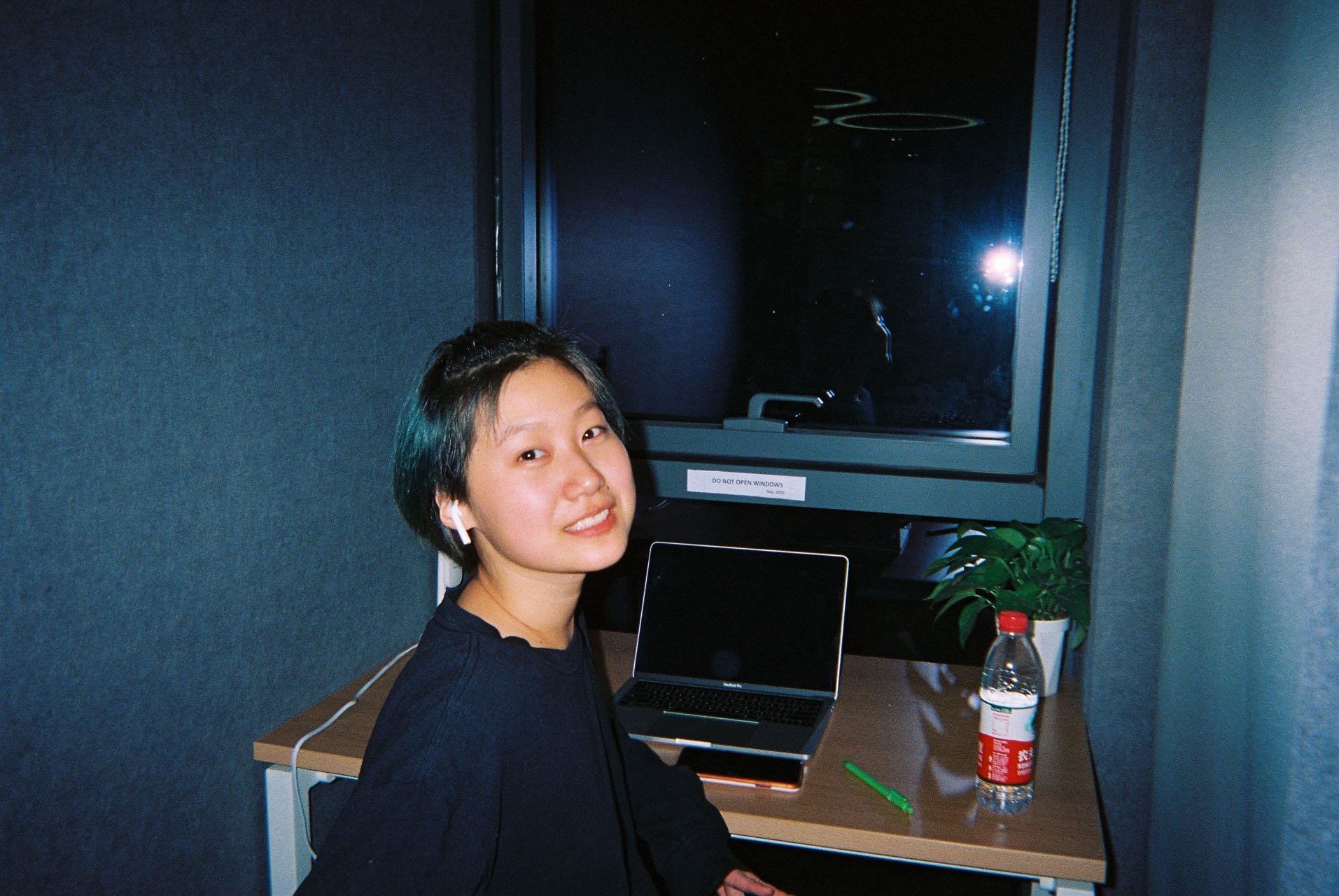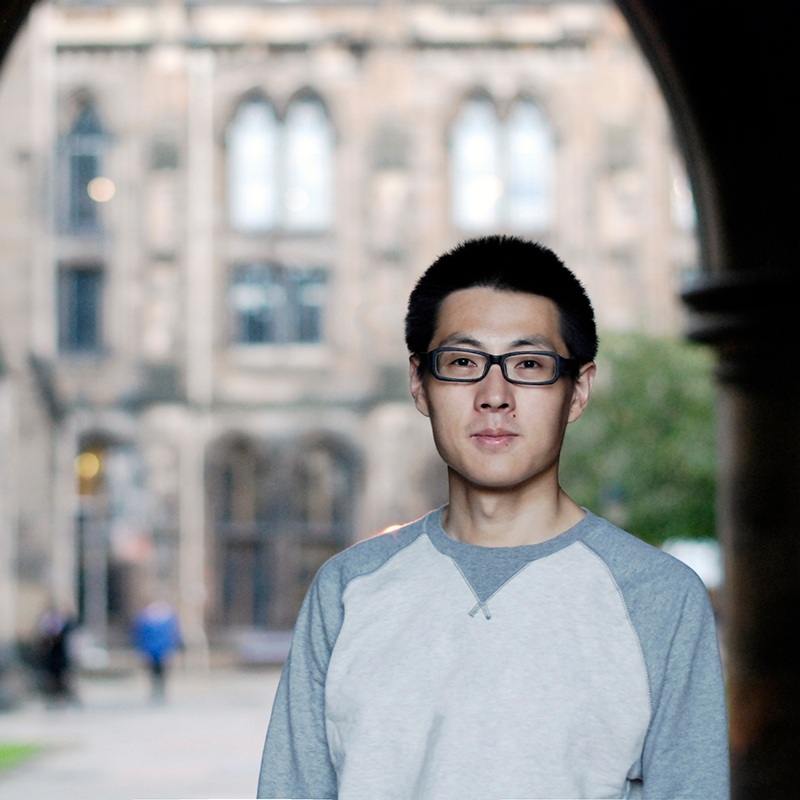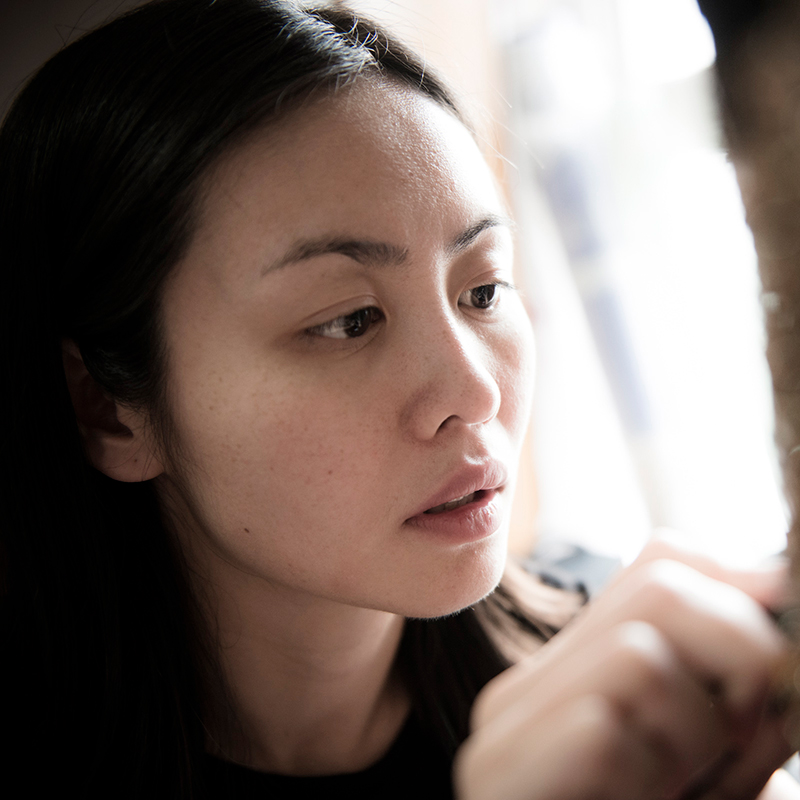By Gareth McPherson
Two students from Duke Kunshan University have been invited to present their social media research to international conferences, a rare honor for undergraduates.
The Class of 2023’s Yujia Zhai and Leiyuan Tian were chosen to address gatherings of leading scholars in Paris, Dublin and online this year, covering hot topics such as attitudes to algorithms and fandom accounts.
Tian’s research focuses on fandom identities on Twitter and fan-made YouTube films based on video game characters as growing areas of digital culture.

Yujia Zhai
Zhai explores how content creators and users understand and respond to the personalized algorithms that drive Douyin, China’s version of TikTok, and other Chinese social media platforms.
“I wasn’t expecting to be invited because I’m still an undergraduate and most others presenting are doctoral students and professors,” Zhai said on having her papers selected by two conferences. “It was also the first time I’d applied. I felt thrilled, it is a real honor.”
Zhai will present her paper “An Angel for Online Influencers? The Role of MCN (multi-channel networks) in Creative Labor on Chinese Platforms” to the 23rd AoIR (Association of Internet Researchers) Conference in Dublin this November.

Both U.S. and Chinese platforms were the focus of the studies
In the study she looked at how digital media content production could be affected by institutions such as MCNs, which support content creators on video platforms typically in exchange for a slice of advertising revenue. Zhai, who is from Nanjing in Jiangsu province, found that MCNs could significantly impact the practices of online influencers.
In May, she introduced “Algorithmic Imaginaries: How Chinese Cultural Creators Engage with Content Curation on Platforms” to the 72nd ICA (International Communication Association) conference in Paris.
“Both creators and users tend to personify algorithms,” Zhai told the Paris conference via Zoom as she laid out her findings from analyzing thousands of social media posts and interviewing 20 content creators.
“In other words, people are prone to attribute human qualities to a non-human thing or abstraction like algorithms.
Zhai added, “In the cases of acceptance, people would describe algorithms as the ‘god’ or a mind reader, who can accurately recognize their preferences and determine the visibility of their content.
“Then, in the cases of resistance, algorithms may be deemed as ‘dumb’ when people encounter a perceived error of algorithms, such as recommending something they have no interest in at all.
“Or people may resist against algorithms when feeling monitored, disturbed or controlled by algorithms.”
Tian’s study “Why is Reed900 Shippable? Romance, Appropriation, and Participation in Refashioning Video Game Character Relationship on YouTube” was also accepted by the AoIR conference.
Further, she is set to address the online-only 12th International Conference on Social Media & Society in July on her paper “Fans as Homo Narrans: How User Participation in Transmedia Collective Storytelling Shapes Dream SMP Fan Identities on Twitter”.
 Leiyuan Tian
Leiyuan Tian
The media and arts students carried out their research with the support of Fan Liang, assistant professor of media, and Vivian Xu, assistant professor of media and arts, at Duke Kunshan’s Division of Social Sciences and Division of Arts and Humanities.
“Both professors gave me the confidence to explore my interests in fan studies and emerging fields in digital culture that might appear ‘weird’ to be treated as research subjects, but insightful for understanding the mentalities of contemporary humans and the ecology of digital societies,” said Tian, from Guangdong province.
“In July and November this year, I will share and present my work at the two conferences and seize the chance to learn from and connect with leading researchers in the field. In the future, I hope to focus on researching online cultures and pursue a career in academia to contribute my research efforts to the studies of communication and new media.”

Fan Liang, assistant professor of media
Liang said Zhai’s findings advanced our understanding of algorithms and institutional actors operating on digital media, and that Tian’s work contributed to our grasp of how people developed their identities on such platforms.
He said the conferences offered the students the opportunity to showcase their academic output to a global audience and to learn from leading scholars from across the world.
“These academic conferences are the annual major gatherings of global communication and media scholars,” Liang said.
“Being chosen to present their research is a rare honor for undergraduates and is proof of our students’ extraordinary talent, creativity and dedication.”

Vivian Xu, assistant professor of media and arts
Xu said both students had been a great pleasure to work with in and out of class.
“It is a true accomplishment to be invited to established international conferences at such a young age,” she said.
“The topical interests that drive their research bring a fresh perspective to the study of digital culture. I’m excited to see their work moving forward.”

